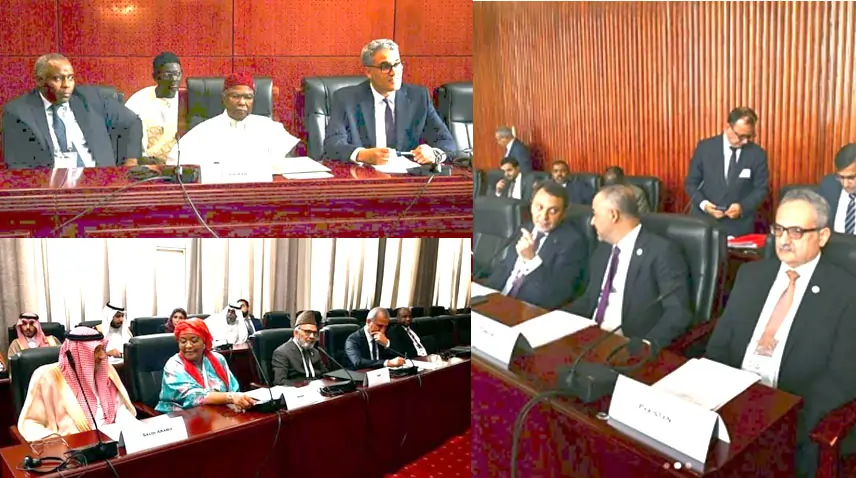Yaoundé, 30 August 2024 (TDI): A meeting of the OIC Contact Group on Jammu and Kashmir took place on the sidelines of the 50th Session of the OIC Council of Foreign Ministers. During the session, Pakistan’s Foreign Secretary briefed the attendees about the ongoing situation in occupied Kashmir. The contact group reaffirmed its support for Kashmiri self-determination and adopted a joint communique for peace and stability in South Asia.
The session was chaired by OIC Secretary General Hissein Brahim Taha, with representatives from Saudi Arabia, Turkiye, Niger, and Azerbaijan. Additionally, the session included the OIC’s Independent Permanent Human Rights Commission (IPHRC) and the True Representatives of the Kashmiri People. Pakistan’s delegation was led by Foreign Secretary Muhammad Syrus Sajjad Qazi.
Also Read: Pakistan’s Foreign Secretary to Lead at 50th OIC CFM
Pakistan’s Briefing on the Situation in IIOJK
Foreign Secretary Qazi provided a detailed briefing on the ongoing situation in Indian Illegally Occupied Jammu and Kashmir (IIOJK). He highlighted India’s efforts to strengthen its occupation in violation of UN Security Council resolutions. He said that India is creating an atmosphere of intimidation and fear in the area to solidify its occupation. Moreover, he called on India to release all political prisoners and lift restrictions on outlawed political parties. He also urged India to revoke the illegal actions of August 5, 2019, and comply with relevant UN Security Council resolutions.
Contact Group’s Reaffirmation of Support for Kashmiri Self-Determination
In response, the Contact Group reaffirmed its support for the Kashmiri people’s struggle for self-determination. They called for an early and peaceful resolution of the Jammu and Kashmir dispute in line with UN Security Council resolutions and the aspirations of the Kashmiri people. The group unanimously adopted a joint communique. It emphasised that lasting peace and stability in South Asia depend on the final settlement of the Jammu and Kashmir issue under UN Security Council resolutions and the desires of its people.
The writer is working for The Diplomatic Insight



